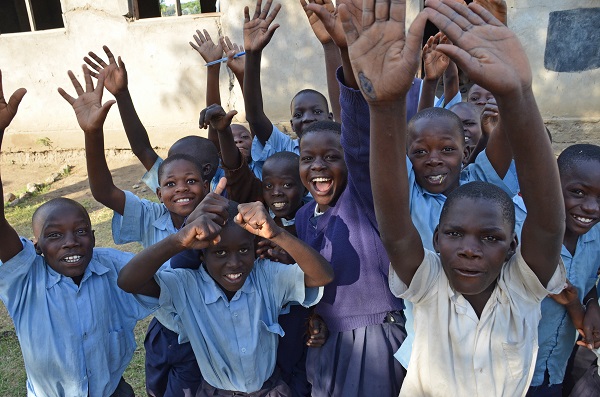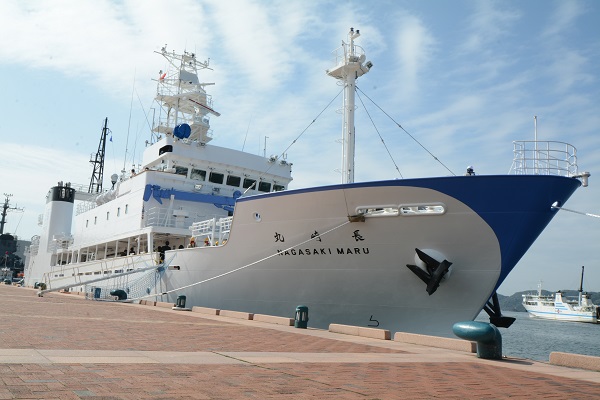Nagasaki University
The university’s School of Medicine is the oldest in Japan, dating back to November 12, 1857 when Igaku Denshujo, Japan’s first institution for teaching Western medicine, was opened by Dutch physician Johannes Lijdius Catharinus Pompe van Meerdervoort. The university today has nine faculties,seven graduate schools, and two research institutes (Institute of Tropical Medicine and Atomic Bomb Disease Institute). Nagasaki is a cosmopolitan city: it was one of the few Japanese ports open to international trade under the isolation policy effected in the Edo period, and has long played a pioneering role in multicultural exchange. Nagasaki is also a city dedicated to peace, and appeals for everlasting world peace based on its experience of the atomic bomb. As a university located in Nagasaki, our mission is to achieve excellence and individuality in research and education, inheriting the spirit of harmony, tolerance, innovation, and peace from the city’s rich historical past.
Number of Students
Undergraduates 7,502
Graduate students 1,540
International Students 576
Number of partner institutions
University Level 235
Faculty Level 8
Student Exchange 165
Overseas Offices
- Nairobi (Kenya)
- Hanoi (Vietnam)
- Nha Trang (Vietnam)
- Can Tho (Vietnam)
- Minsk (Belarus)
- Leiden (The Netherlands)
- Fontenay-aux-Roses (France)
- Jeju (Korea)
- Shanghai (China)
- Keelung (Taiwan)
9 Faculties
- Global Humanities and Social Sciences
- Education
- Economics
- Medicine
- Dentistry
- Pharmaceutical Sciences
- Engineering
- Fisheries
- Environmental Science
7 Graduate Schools
- Global Humanities and Social Sciences
- Education
- Economics
- Engineering
- Fisheries and Environmental Sciences
- Biomedical Sciences
- Tropical Medicine and Global Health
Activities
Nagasaki University values diversity and welcomes students from around the world. Students from various countries are studying in the following courses where English is the language used:
Life sciences
The School of Tropical Medicine and Global Health offers a Masters in Global Health (1-2 years of study), a Doctorate (3 years of study), and a NU-LSHTM Joint Doctor of Philosophy degree in Global Health (3 years of study ).
The Master’s in Global Health offers 3 courses to choose from: a Tropical Medicine Course (Master of Tropical Medicine), an International Health Development Course (Master of Public Health), and a Health Innovation Course (Master of Science in Global Health and Medicine).
The doctoral course is comprised of the Doctor of Philosophy degree programme in Global Health and NU-LSHTM Joint Doctor of Philosophy degree programme in Global Health. Upon completion of either of the programmes, a PhD in Global Health will be awarded.
In particular, the NU-LSHTM Joint Doctor of Philosophy degree programme in Global Health is a joint PhD programme with LSHTM, and the degree to be awarded is a joint degree co-certified by NU TMGH and LSHTM.

The Graduate School of Biomedical Sciences offers a Program for Nurturing Global Leaders in Tropical and Emerging Communicable Diseases (PhD in Medical Science), and a master course in Disaster and Radiation Medical Sciences (Master of Medical Science) in the Joint Graduate School with Fukushima Medical University. The graduate school also offers Priority Graduate Programs for Foreign Students in Biomedical Sciences (Master of Pharmaceutical Science, PhD in Pharmaceutical Science, and PhD) for studies on biological and medical sciences of infectious diseases, neuroscience, pain, drug addiction, environmental pollutants, anticancer target molecules, and medicinal natural products.

Engineering
The Graduate School of Engineering offers a Water and Environmental Engineering Program (Master of Engineering and Doctor of Engineering) which emphasizes a practical and multidisciplinary approach to solving water environmental problems.

School of Global Humanities and Social Sciences (SGHSS)
In the current globalized world, the demand for multicultural coexistence and cooperation has been increasing. To meet the challenges of the modern world, Nagasaki University has established the School of Global Humanities and Social Sciences (SGHSS). The SGHSS’s primary aim is to develop students who can succeed in the ever-changing global world we now live in. The SGHSS uses innovative and forward-thinking methods to educate students to actively participate in the international community. SGHSS allows students to study a wide range of subjects in English.
Japanese Language Education
The Center for Japanese Language and Student Exchange offer a Japanese language program for international students who wish to learn Japanese. The class levels range from basic to advanced.
The Center also offer a Japanese Language and Culture Program (JLCP) which is for international exchange students who are enrolled in an undergraduate program in a foreign partner university and who are majoring Japanese or Japanese literature. Exchange students can attend this program for one semester or full academic year.
Researches
Research for Radiation Health Risk Control
As the only university in the world that experienced atomic bomb suffering, Nagasaki University has been committed to promoting education and research on international radiation health sciences, atomic bomb disease medicine, and radiation basic life sciences.
Research for Tropical and Emerging Infectious Diseases
With overseas research stations in Kenya and Vietnam, the Institute of Tropical Medicine at Nagasaki University is regarded as the base for research on tropical and emerging infectious diseases in Japan.
Practical Training on board and waterfront
Being surrounded by the sea, Nagasaki University offers unique opportunities to study fisheries through practical training on board its own ship ‘Nagasaki maru’ and on the waterfront.

Information
![]()
Website http://www.nagasaki-u.ac.jp/
Adress 1-14 Bunkyo, Nagasaki City 852-8521, Japan
Tel +81-95-819-2120
Fax +81-95-819-2125
e-mail ryugaku@ml.nagasaki-u.ac.jp